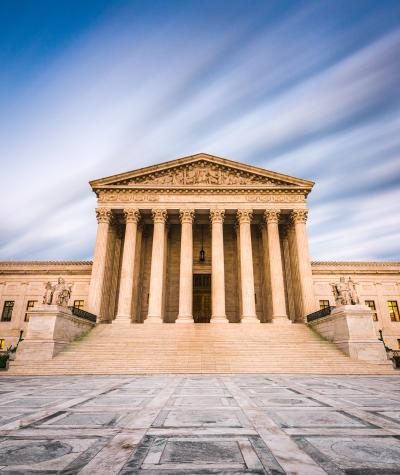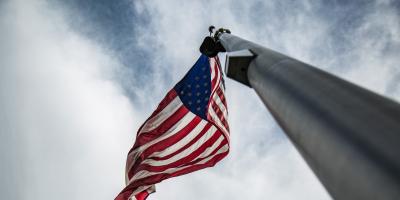Campaign Legal Center (CLC) and our partners are asking the U.S. Supreme Court to defend the ability of Americans to use the Voting Rights Act (VRA) to challenge unfair voting maps that dilute voters’ power based on their race.
On behalf of our clients, the Spirit Lake Nation (Mni Wakan Oyate), Turtle Mountain Band of Chippewa Indians and individual voters, we’re challenging a dangerous ruling that threatens to erode the protections of the VRA.
In a case originating from North Dakota, the U.S. Court of Appeals for the Eighth Circuit decided in May 2025 that private individuals and organizations cannot use Section 1983 of the Civil Rights Act/Klan Act of 1871 — a critical tool for fighting civil rights violations — to bring lawsuits to enforce Section 2 of the VRA.
This reinforces an earlier decision by the Eighth Circuit that ruled private individuals cannot file suit directly under Section 2 of the VRA.
This decision, if it were to ultimately stand, would prevent voters from challenging unfair maps and racially discriminatory voting practices not only in North Dakota, but also in the six other states under the jurisdiction of the Eighth Circuit: Arkansas, Iowa, Minnesota, Missouri, Nebraska and South Dakota.
Without a private right of action to enforce Section 2 of the VRA, states could pass unfair maps or voting laws that are racially discriminatory, and voters would not have any ability to challenge them in court.
Campaign Legal Center and our partners were able to pause the Eighth Circuit’s decision through an emergency filing with the U.S. Supreme Court. Now we are asking the Justices to settle this matter permanently, to ensure that all voters can enforce the Voting Rights Act.
How Did We Get Here?
North Dakota has a long history of denying Native Americans the right to equally participate in their government.
Campaign Legal Center (CLC) has been working in partnership with Native voters in North Dakota for years to combat this discrimination. On behalf of our clients and in partnership with the Native American Rights Fund (NARF), the Law Offices of Bryan L. Sells, LLC, and Robins Kaplan LLP, we sued over legislative district maps that unfairly diluted the voting power of Native Americans.
We won this lawsuit. As a result, a new legislative map was put into place, resulting in historic levels of Native American representation in the state legislature. This includes our client, Collette Brown, who became the first Spirit Lake Nation member elected as a North Dakota state representative.
However, North Dakota officials appealed to the Eighth Circuit, and, in May 2025, the Eighth Circuit issued its ruling that private plaintiffs (individuals, nonprofit groups, civic organizations, etc.) cannot sue using Section 2 of the VRA, which prevents racial discrimination in voting.
Following this stunningly undemocratic move, CLC and our partners asked the entire Eighth Circuit to review the case, not just the three-judge panel that issued the decision. We argued that, if the ruling were to stand, Native voters in North Dakota would be silenced, and millions of voters across seven states could be harmed.
Despite these grave consequences for our democracy, the entire Eighth Circuit refused to rehear the case. This means voters in Arkansas, Iowa, Minnesota, Missouri, Nebraska, North Dakota and South Dakota cannot sue when a state enacts a racially discriminatory map or voting law.
Now, only the Department of Justice (DOJ) can sue to enforce Section 2 in those states. Considering the fact that the DOJ has dropped many of its cases fighting for voting rights, voters themselves must be able to hold their government accountable if it enacts unfair voting maps.
What’s Next?
On July 15, we asked the U.S. Supreme Court to put the Eighth Circuit’s ruling on pause. Without this pause, the discriminatory map that was ruled unlawful by a lower court would be in effect during the 2026 election.
In a temporary victory for voters, the Supreme Court agreed to pause the Eighth Circuit’s unprecedented ruling, leaving fair maps in place for Native voters. Now, Campaign Legal Center and our clients are urging the Court to consider and permanently reverse the Eighth Circuit, so that all voters can access the courthouse door to fight for fair maps and voting laws.
All voters should be protected under the Voting Rights Act. We are hopeful the U.S. Supreme Court will abide by precedent and confirm voters' power to enforce their voting rights in court.
Campaign Legal Center and our partners continue our fight to ensure that every voter can vote under fair maps for fair representation. Join us in our efforts to protect voters everywhere from unfair and discriminatory voting maps.



